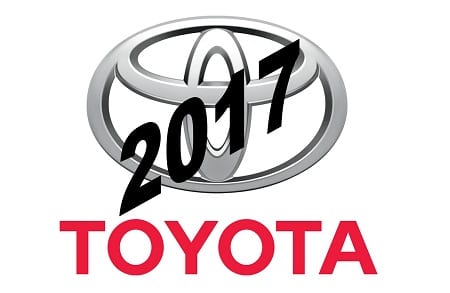Toyota releases more details of 2017 fuel cell vehicle model
September 23, 20162017 Mirai will be more efficient than its predecessor
Toyota has revealed more details about its 2017 Mirai, the next model of its increasingly popular fuel cell vehicle. The first iteration of the Mirai was launched in early 2015. The vehicle quickly found success in Japan, where Toyota had to increase production due to higher than expected demand among consumers. Since then, Toyota has been eager to improve its fuel cell technology in order to produce a more efficient and attractive vehicle.
EPA awards 2017 Mirai with a 312 mile range
The 2017 Mirai has managed to generate significant promise recently, with the U.S. Environmental Protection Agency awarding the vehicle with an estimated driving range of 312 miles. The Mirai is among one of the most efficient clean vehicles currently available to consumers, largely due to the capabilities of hydrogen fuel cells. While the new Mirai will be more efficient than its predecessor, it will retain the same pricetag, which is approximately $57,500. Some consumers may qualify for tax credits from the federal government. In some states, such as California, such tax credits are also available, making the Mirai more attractive to consumers.
Toyota’s fuel cell vehicle is gaining more attention from consumers
 Fuel cell vehicles are beginning to attract a great deal of attention. These cars are efficient and boast of high performance. Toyota is one of several major automakers that has begun to embrace fuel cell technology. These companies have come to believe that fuel cell vehicles have a major role to play in the future of the transportation space. Fuel cell vehicles are beginning to catch up to conventional battery electrics in terms of popularity among consumers.
Fuel cell vehicles are beginning to attract a great deal of attention. These cars are efficient and boast of high performance. Toyota is one of several major automakers that has begun to embrace fuel cell technology. These companies have come to believe that fuel cell vehicles have a major role to play in the future of the transportation space. Fuel cell vehicles are beginning to catch up to conventional battery electrics in terms of popularity among consumers.
Hydrogen infrastructure is needed to support growth of clean transportation
While fuel cell vehicles are gaining traction, their ultimate success will hinge upon the availability of fuel. Most of the United States lacks a comprehensive hydrogen fuel infrastructure, which is needed to support fuel cell vehicles. Without access to fuel, consumers are unlikely to show much support for fuel cell vehicles, opting instead for more conventional solutions that they are comfortable with.

 HFN News is your leading source for fresh hydrogen and renewable energy updates. Amid the fast-paced growth of hydrogen companies, we provide top-notch news and insights about this exciting sector. Our coverage spans from hydrogen cars to global sustainable initiatives, and we highlight the latest in green jobs and developing hydrogen hubs. We invite you to share your local hydrogen news and explore today’s renewable energy job listings on our site. Thanks for choosing HFN News as your trusted guide to the hydrogen and renewable energy world!
HFN News is your leading source for fresh hydrogen and renewable energy updates. Amid the fast-paced growth of hydrogen companies, we provide top-notch news and insights about this exciting sector. Our coverage spans from hydrogen cars to global sustainable initiatives, and we highlight the latest in green jobs and developing hydrogen hubs. We invite you to share your local hydrogen news and explore today’s renewable energy job listings on our site. Thanks for choosing HFN News as your trusted guide to the hydrogen and renewable energy world!